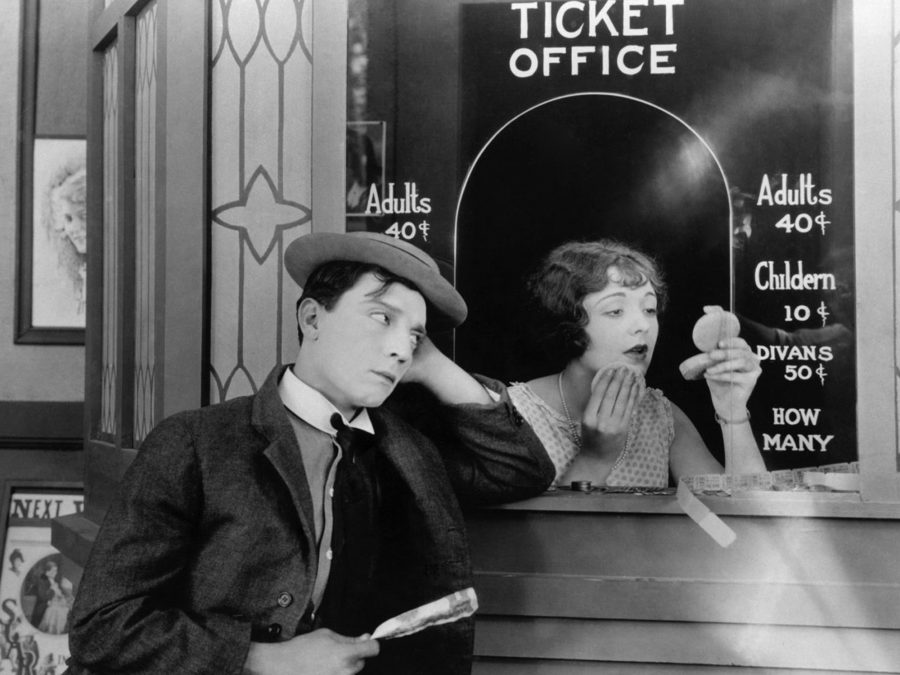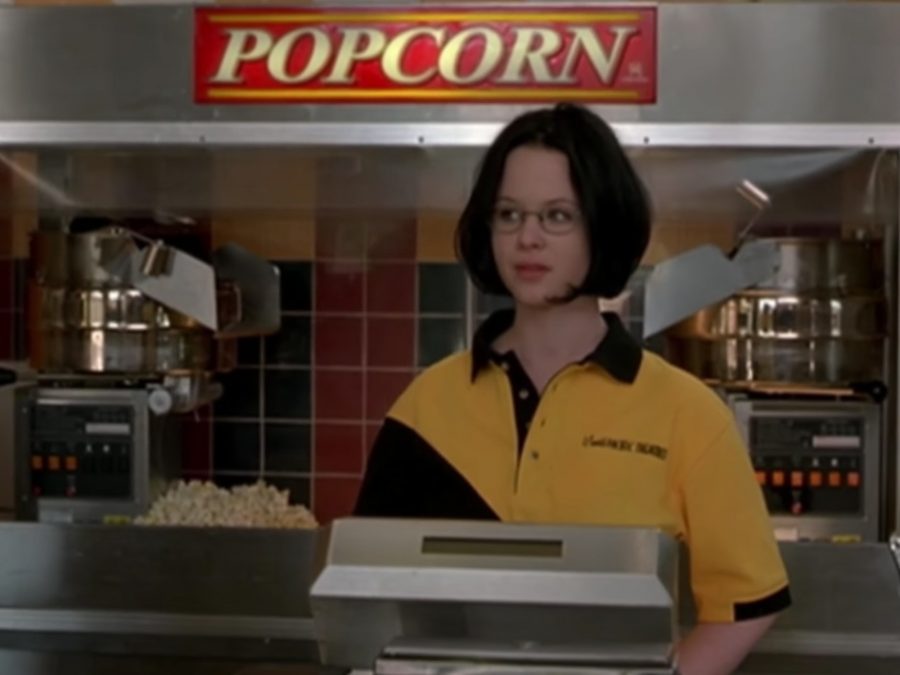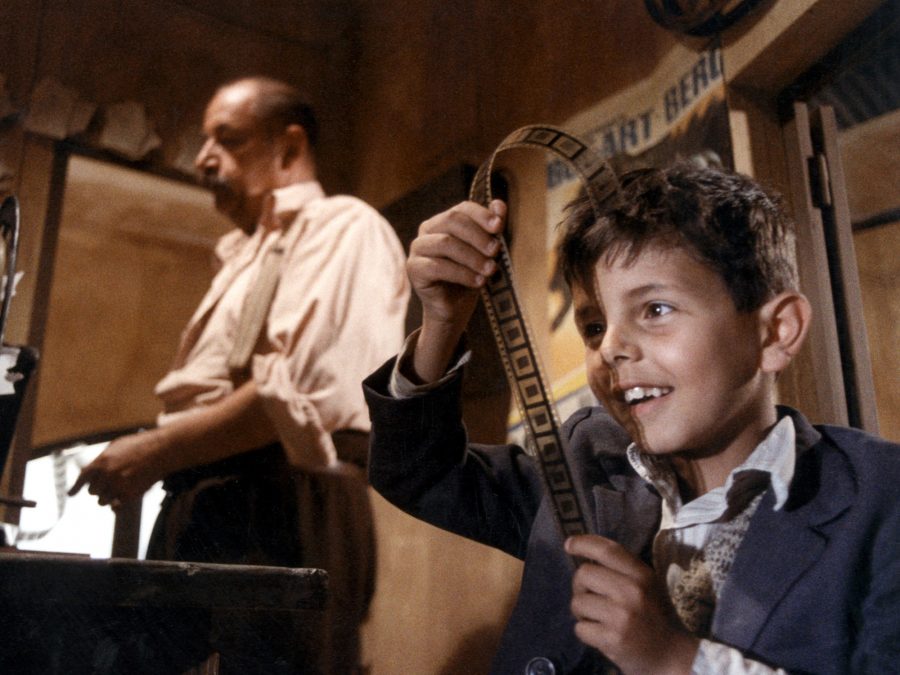In his 1920s-set Babylon, Damien Chazelle reprises La La Land’s fascination with Hollywood. La La Land played homage to a bygone chapter of Hollywood history with its affectionate evocation of screen musicals, but Babylon is a brasher affair with an 18 certificate to prove it. Playing alongside it are two other releases that memorialise the era of analogue film; Sam Mendes’ Empire of Light and Steven Spielberg’s The Fabelmans.
Hollywood’s enduring obsession with itself is well recognised, but Babylon, The Fabelmans and Empire of Light enter a more specific strand of cinema history: films that depict cinema going. Long before Empire of Light, Buster Keaton’s Sherlock Jr. (1924) and Giuseppe Tornatore’s Cinema Paradiso took audiences behind the scenes of small-town cinemas. Where Keaton plumped for the fantastical, using revolutionary effects to allow his projectionist protagonist to step into the silver screen, Tornatore and Mendes are concerned with the everyday. A jaunt through the fictional cinemas committed to film reflects not only the good, but also the bad and ugly of spending a night at the pictures.

The Good
Some have called Empire of Light an “ode to cinema”, but it’s also an ode to the work of cinema staff. While Sherlock Jr. is blasé about the only form of projection its pre-digital creator knew, Empire of Light takes pains to celebrate – and explain – the dying art. Newcomer Stephen (Micheal Ward) is a proxy for the audience as projectionist Norman (Toby Jones) mansplains the optical illusion that makes cinema possible. It’s a clunky conceit but a clear signal of respect for the dwindling ranks of skilled workers who keep screening from celluloid alive.
Projection talent is also scarce in Cinema Paradiso, where schoolboy Totò steps in for the injured Alfredo. The older man’s initial impatience gives way to an iconic, decades-spanning bond, starting with Alfredo protecting Totò from his mother’s anger after he spends money for food on a cinema ticket. The touching relationship is faintly echoed in Mendes’ film, where Stephen works his way into Norman’s affections, also becoming a projection protégé.
It’s characteristic of the supportive relationships among the Empire’s staff – only manager Mr Ellis (a gloriously cast Colin Firth) eschews staffroom camaraderie. From sharing enthusiasm for two-tone tunes to looking out for the worsening mental health of Olivia Colman’s duty manager Hilary, the Empire’s staff are a close-knit bunch. This extends to the community they serve, with regular customers being welcomed by name.

The Bad
Audiences don’t always return such kindnesses. Keaton’s projectionist spent a lot of time attending to abandoned rubbish, and Empire of Light frequently shows staff sweeping up spilled popcorn. Colman and colleagues also reminisce about times they’ve dealt with far more disturbing detritus, including the body of a heart-attack victim whose demise recalls a similar incident in Cinema Paradiso. The mob rules the titular Italian picture house, where audience members smoke and shout exasperatedly at Alfredo when the film skitters out of frame.
Romantic comedies, too, are littered with badly-behaved audience members. Films including Trainwreck and How to Lose a Guy in 10 Days feature scenes of dating couples chatting guilelessly during screenings, with the ire of fellow filmgoers escalating around them (like driving scenes, perhaps this setup simply offers a convenient way to frame two actors face-on).
The interrupting audience reached an apex in Maggie Gyllenhaal’s The Lost Daughter, where Colman’s Leda is an infuriated viewer rather than jobbing duty manager. Provoked by the flagrant chatting and rude gestures of a group of young patrons, she asks staff to intervene. The boys hoodwink the usher, then continue to disrupt the film. With angry tears glowing in her eyes, it’s clear Leda feels made a fool of. At least in Empire of Light Hilary can lay down the law. She upbraids Stephen after catching him mocking an elderly customer, saying “people come here for a good time, not to be laughed at”.
Staff misbehaviour has precedents too. Keaton’s projectionist was literally asleep on the job, and in cult coming-of-ager Ghost World, Thora Birch’s Enid can’t keep her sarcasm to herself: “After about five minutes of this movie, you’re gonna wish you had 10 beers”. Her disregard for policies including upselling larger drinks offers a cynical commentary on the corporate and capitalist nature of multiplex cinemas. Ghost World’s Pacific Theatres chain is worlds away from the community venues cherished in Empire of Light and Cinema Paradiso.

The Ugly
Just as it reveals less savoury aspects of cinema work, Empire of Light doesn’t shy away from darker parts of life. As a post-#MeToo workplace drama set within the film world, maybe it’s unsurprising that it portrays sexual harassment. We soon learn that Hilary and Mr Ellis are sleeping together, and this aspect of their relationship becomes increasingly unsettling as Hilary’s backstory emerges. Given the less-than-progressive attitudes towards mental health in the 1980s, it’s likely Hilary feels indebted to Ellis for keeping her employed. That he chooses to cash this in for sexual favours is a clear abuse of power.
Stephen, too, experiences prejudice. There’s a loaded incident with a customer who stops just short of using racial slurs – but whose racism is nonetheless apparent. The overt threat of racialised violence looms over and eventually engulfs him.
Social unrest is given more comedic treatment in Cinema Paradiso, where a long-running class rivalry plays out across the split-level screening room. The boisterous patrons of the stalls are starkly contrasted with flashier, quieter attendees in the gallery. Their cinema etiquette still leaves a lot to be desired; throughout the film a condescending regular spits and flicks ash at the crowds below. His efforts are ultimately rewarded with a napkin of faeces to the face.
From masturbation to shouting matches, all of life unfolds within the microcosmic Cinema Paradiso. Yet the audience often find the viewing experience frustratingly incomplete. Boos and groans meet the abrupt cuts that take the place of screen kisses censored by the town’s priest. Later, a scheduling snafu forces audiences to endure unplanned intermissions as film reels are bicycled from one venue to another.
These self-referential totems of filmgoing remind us that cinema, like life, is a mixed bag. But there’s always a fighting chance it’ll live up to the hopeful promise emblazoned in Empire of Light’s cinema lobby: “Find where light in darkness lies”. That feels like a pretty good reason to keep going back.
The post Cinema trips in the movies: The good, the bad and the ugly appeared first on Little White Lies.


0 Comments